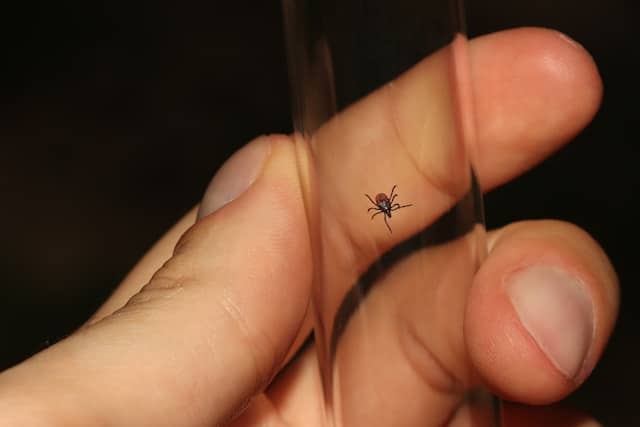Scientists don’t know what causes neurodegenerative disease — but some believe the brain doesn’t tell the whole story: These diseases might start in the gut.
Even after decades of studying Alzheimer’s, Parkinson’s, and other similar conditions, scientists still don’t know what exactly causes the disease to develop. What they do know is that years before cognitive symptoms appear, people with Alzheimer’s and Parkinson’s develop changes in the gut, including constipation and changes in the gut bacteria. Emerging research suggests that signals from the gut microbes and toxic protein build-up — like beta-amyloid and alpha-synuclein — travel from the gut to the brain.
These traveling, signals and toxic proteins could trigger a decades-long series of events that leads to disease pathology in the brain — and the debilitating cognitive symptoms that tend to come with it.
If this proves true, we “could test people at high risk more frequently through a simple stool test” to screen for diseases like Alzheimer’s sooner than we do now, according to. Patients who test positive on this test will be monitored more closely and may be referred for a lumbar puncture or amyloid PET scan for a definitive diagnosis.
If the bacteria living in the gut are at least in part responsible for changes in the brain, then that means transplanting these bacteria from people with Alzheimer’s disease into rats could also transfer some of the symptoms and pathology. A 2023 study published in the journal Brain lead by Yvonne Nolan, a professor of Anatomy and Neuroscience at University College Cork found evidence supporting this idea, finding that “Alzheimer’s symptoms can be transferred to a healthy young organism via the gut microbiota.”
While modeling human behavior in animals comes with caveats, it can provide interesting clues about cause and effect, Nolan said:
“Understanding how the gut microbiome fits into the wider picture of genetic, environmental, societal and lifestyle factors that influence dementia risk may open avenues for intervention.”
Promiscuous protein plaques
The proteins that form the hallmark brain plaques in Alzheimer’s disease — beta-amyloid — and Parkinson’s disease — alpha-synuclein — aren’t just made in the brain. These proteins and their precursors may start building up in the gut, leading to changes in gut function. If this causes constipation, for example, the change in bowel frequency would alter which gut bacteria live and thrive in your gut.
These protein plaques could wreak havoc elsewhere in the body as well. In animal models, beta-amyloid proteins can travel from the gut to the brain either through the bloodstream or directly through nerves, leading to Alzheimer’s or Parkinson’s-like symptoms.
Proving the same in humans would be extremely difficult, however.
What happens in vagus
The vagus nerve, also known as the wandering nerve as it descends from the brain and connects with just about every other major organ, including the gut. So when scientists say what happens in vagus doesn’t always stay in vagus, they mean it.
If the toxic proteins that are hallmarks of Alzheimer’s and Parkinson’s travel through the vagus nerve, what happens when you sever the connection? In the past, cutting part of the vagus nerve via a procedure called a vagotomy helped treat some gut disorders like peptic ulcers.
A 2017 study published in Neurology by Swedish scientists tried to look for a connection between vagotomy procedures and Parkinson’s risk. They looked at the medical records of 9,430 people who received a vagotomy and compared them to a group of 377,200 controls. While the study didn’t find a significant link between this surgical procedure and Parkinson’s risk, they found a potential protective effect of truncal vagotomy — a form of the procedure that cuts off the nerve’s entire connection to the gut — may potentially lower the risk of developing Parkinson’s.
For Alzheimer’s and dementia, however, researchers have not found any evidence that vagotomy could reduce the risk of developing the disease.
However, since vagotomies are no longer a commonly used procedure for treating ulcers, researchers have had to turn to another strategy for answering this question.
It’s a microbial world
There is now plenty of research suggesting that people with Alzheimer’s, Parkinson’s and cognitive impairment have differences in their microbiota — the types of bacteria thriving in their gut — compared to healthy individuals.
These bacteria release chemicals that can send signals along the vagus nerve, affect the immune system, and potentially affect the rate of cognitive decline as well.
One strategy scientists are using now involves a fecal microbiota transplant, which transfers gut microbes from people to animals. In Nolan’s recently published study, she and her colleagues found that transferring the gut bacteria from people with Alzheimer’s into young, healthy rats caused the rats to develop problems with their memory and learning.
Fecal microbiota transplants (FMTs) are a new type of treatment powered by healthy microbes extracted from poop. It is a powerful experimental tool for teasing out the role of gut bacteria on various diseases including Alzheimer’s disease and is being studied as a treatment for various different gut and immune diseases. One form of FMT, which is packaged into a capsule, is already FDA-approved for treating antibiotic-resistant Clostridiodes difficile infection.
Scientists cannot yet say definitively that Alzheimer’s or Parkinson’s starts in the gut. The evidence uncovered by scientists so far, could potentially lead to new treatments.





I am of the impression, that the loss of nightly dreams can be the very first clear cut indication of Alzheimer’s and that means to regain nightly dreams can be the 1st step to stop Dementia.
A dear friend had a fecal transplant for C-Dif; about 10 years later she’s developed Parkinson’s . . . Now I’m wondering if the donor possibly has Parkinson’s too. Am going to try to research this potential link.
Hi Robin, before patients do a fecal matter transplant, there is a very strict selection process for the donors which exclude anyone who might already be sick. While there might be a link between the gut and Parkinson’s, there haven’t been any cases of neurodegenerative diseases transferred by way of an FMT (outside of rats and mice) that we know of at this point — but we will be keeping an eye on the research!